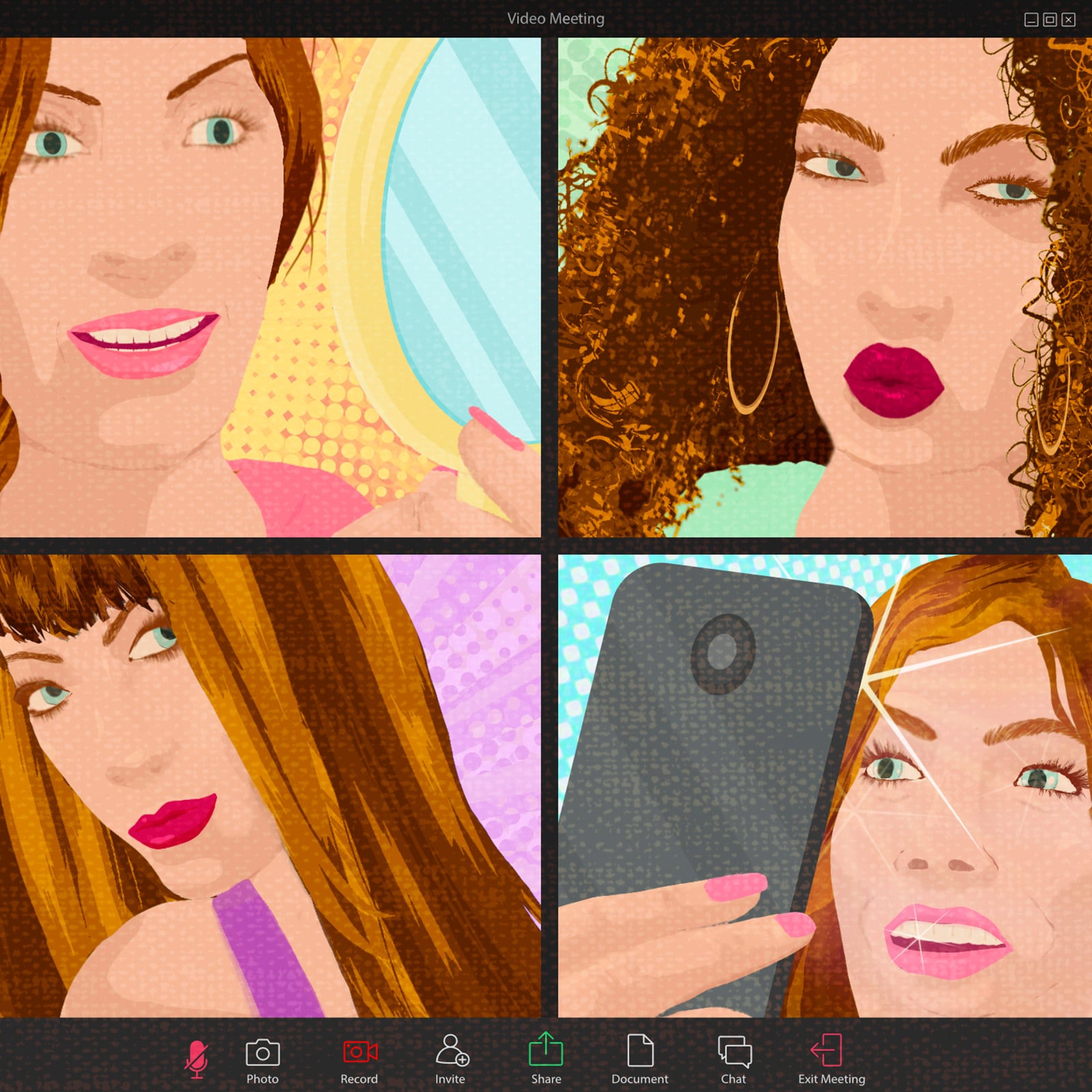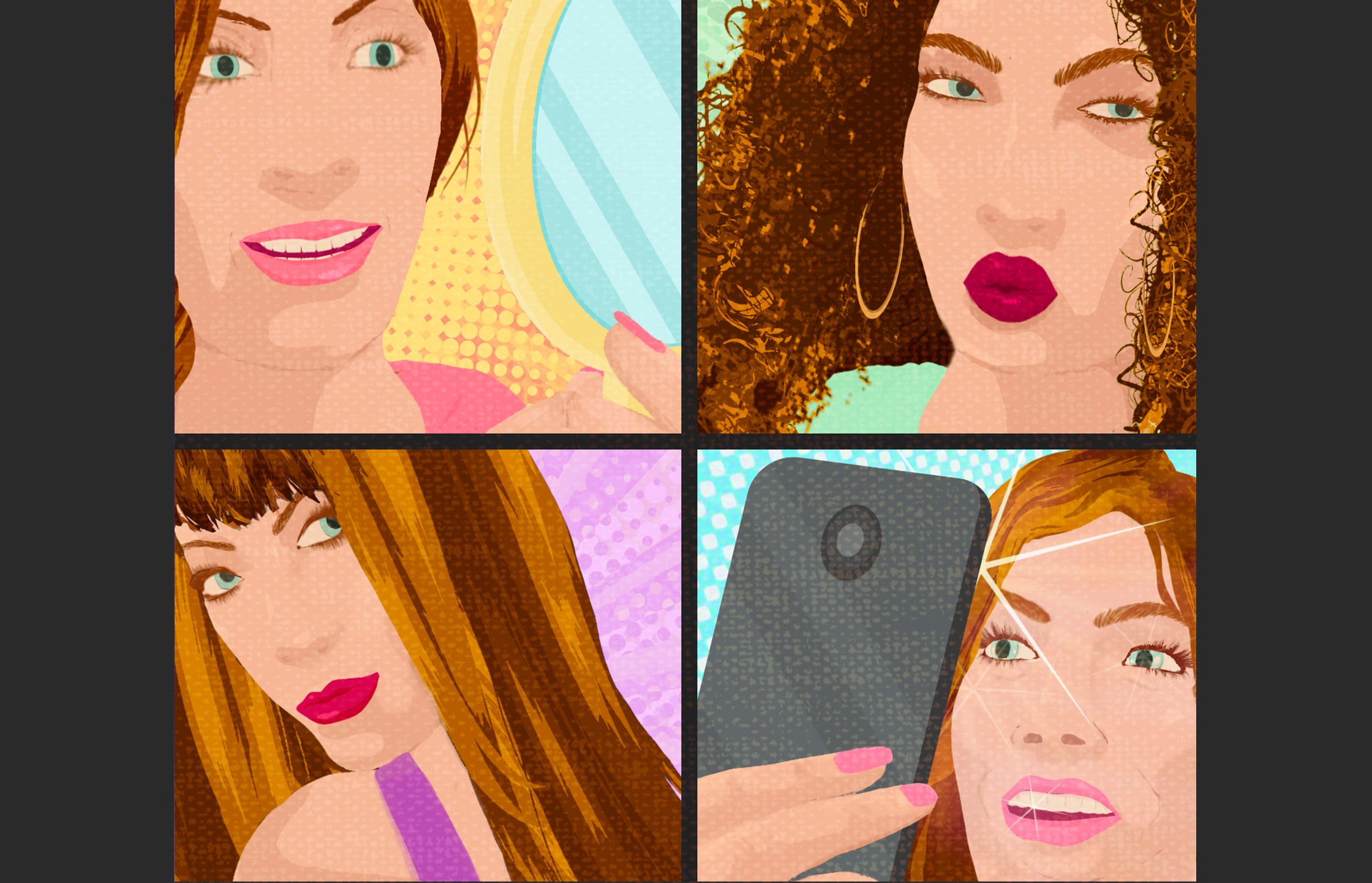A Zoom Boom for Cosmetic Surgery
Bothered by unflattering online images, and with time to recover at home, more people are seeking plastic surgery to correct perceived flaws
By Maya Bell
Illustration by Oli Winward

Illustration by Oli Winward
They say the camera doesn’t lie, a debatable adage that is prompting a growing number of people who have endured the pandemic by working, learning and socializing online to buy better versions of themselves.
Board-certified plastic surgeons across the nation attribute a growing demand for cosmetic surgeries to the time people spend viewing their unfiltered, real-time images via videoconference. Following COVID-19’s emergence, the number of daily participants using the web conferencing platform Zoom exploded from 10 million to more than 300 million.
“It’s a real phenomenon,” said Devinder Singh, M.D., chief and program director of the Division of Plastic Surgery, who joined the University early last year in part to build a robust aesthetic plastic surgery practice at the Miller School and UHealth. “People started seeing themselves not only more frequently and more close-up, but also from different angles, with bad lighting and in animation. That change — from static photos filtered on social media to moving images — made people see expressions and asymmetries that they might not have noticed before. And it caused them to pick up the phone and call a plastic surgeon.”
What’s more, with social distancing and work-from-home policies in place during the pandemic, people have the time, flexibility and privacy to recover from a procedure.
“You’re at home. You’re not taking vacations or socializing. And if you do go out, you can wear a mask to cover your face during the recovery period,” Dr. Singh said. “So instead of putting your money toward a cruise, you put your money toward a face-lift.”
Dr. Singh doesn’t expect either the surge in cosmetic procedures — or the number of unqualified cosmetic surgeons offering to perform them — to decline. That’s especially true in Miami, which he described as a global capital for aesthetics.
“It’s always been a hot spot because the weather is great, people wear less clothes, and they are more interested in the way they look,” he said. “Social media has really fueled what you could call a micro-tourism market, where people from all over the United States travel to Miami for aesthetic surgery.”
Dr. Singh cautions people interested in cosmetic surgery to shop carefully.
“At the University of Miami you know you’ll get highly trained experts who bring quality, safety and professionalism to the operating table,” he said. “That’s not always the case if you find your surgeon on Instagram or TikTok.”![]()



